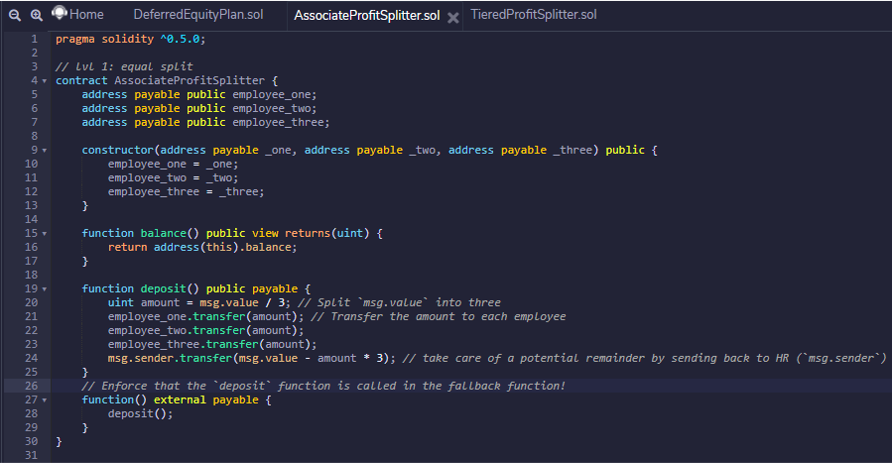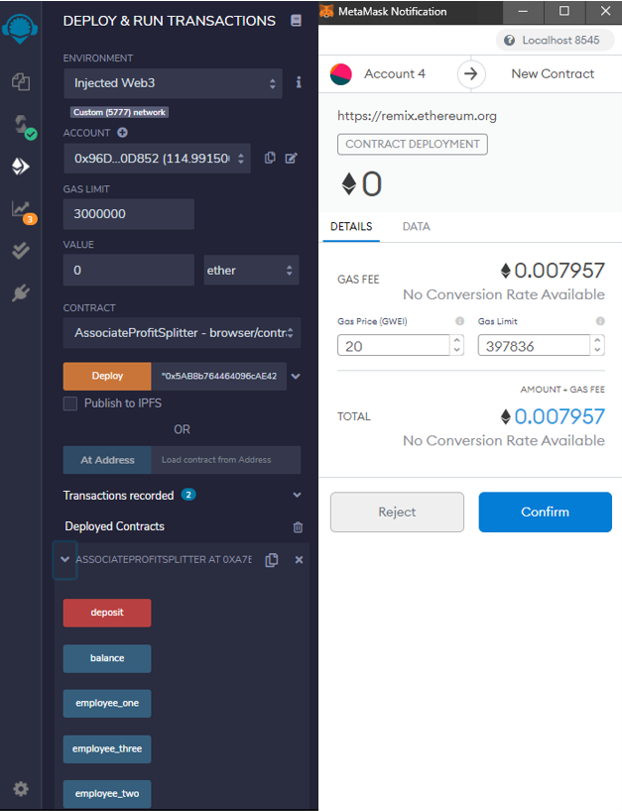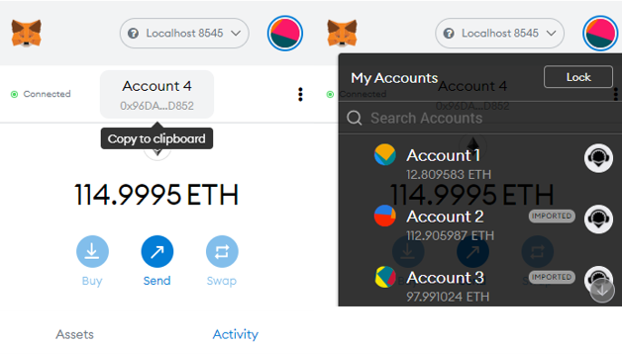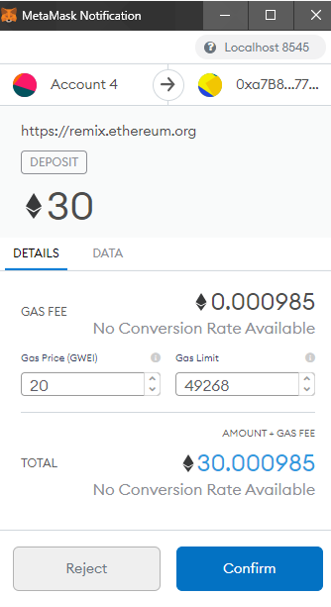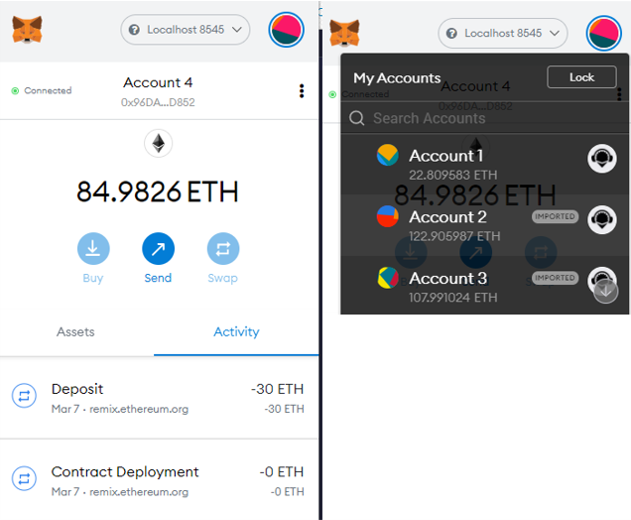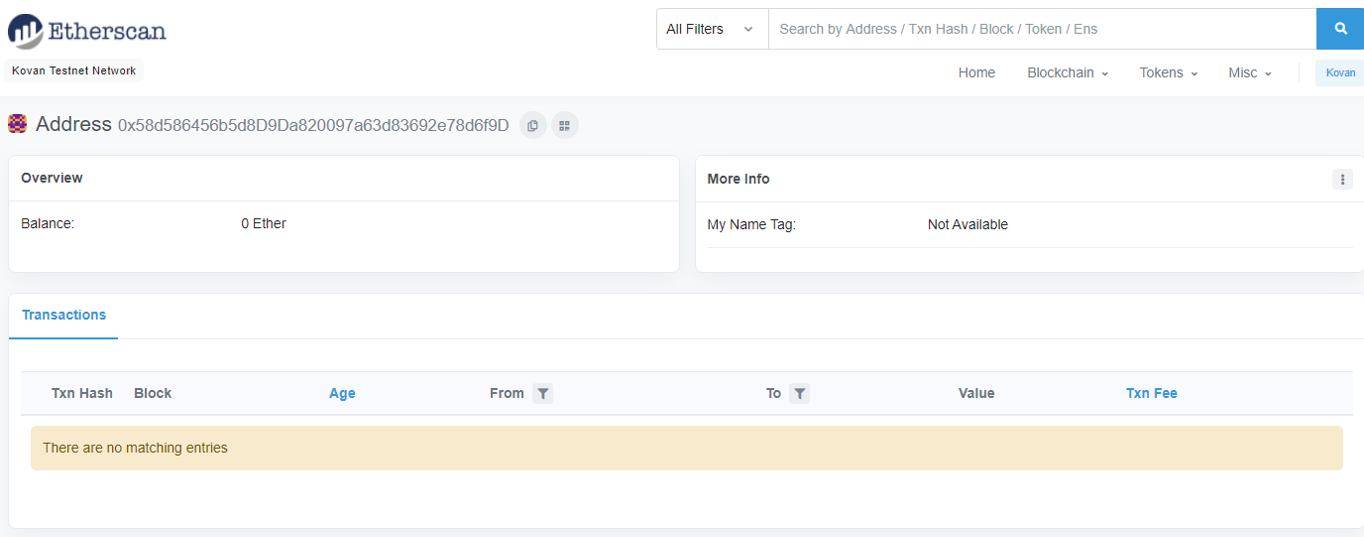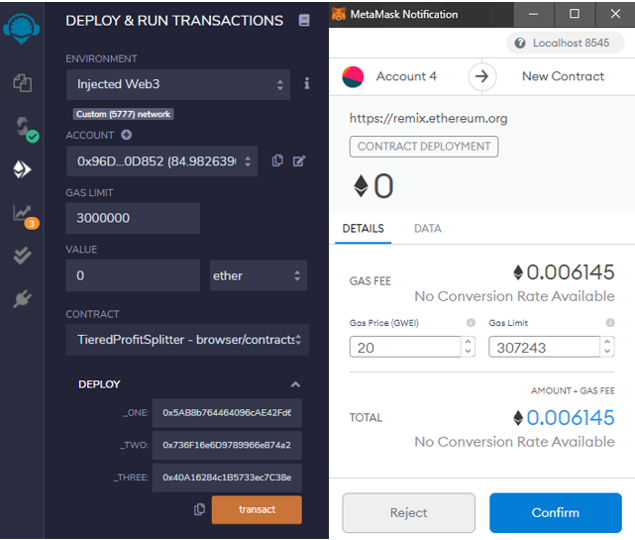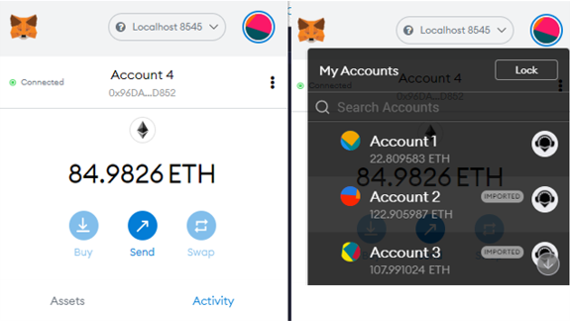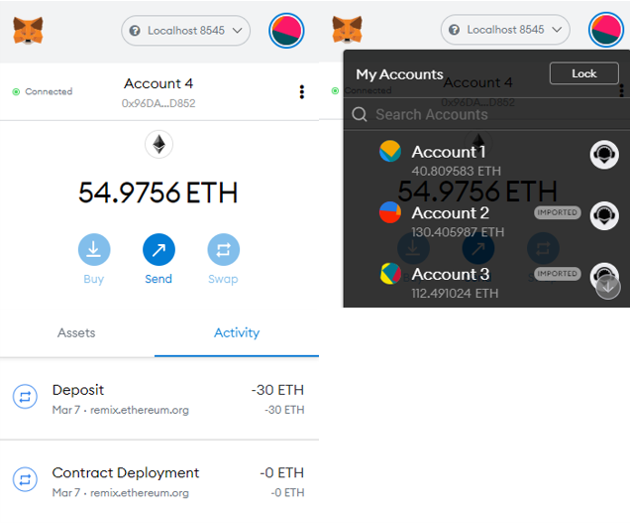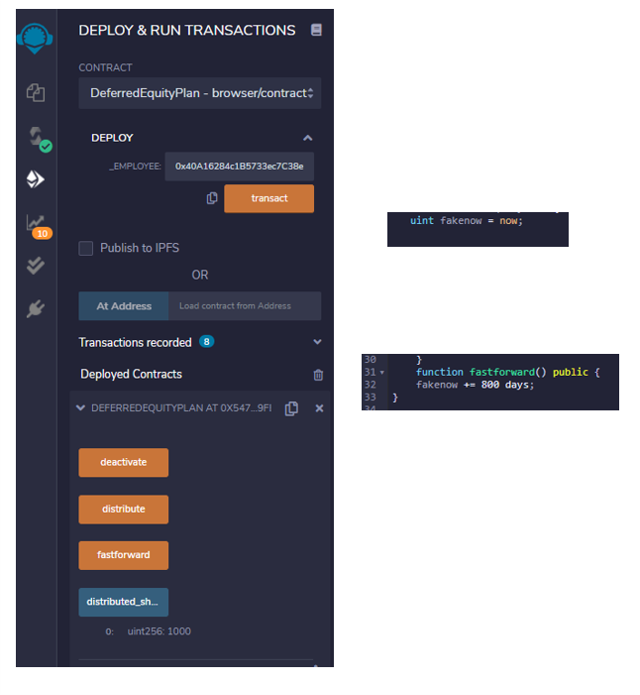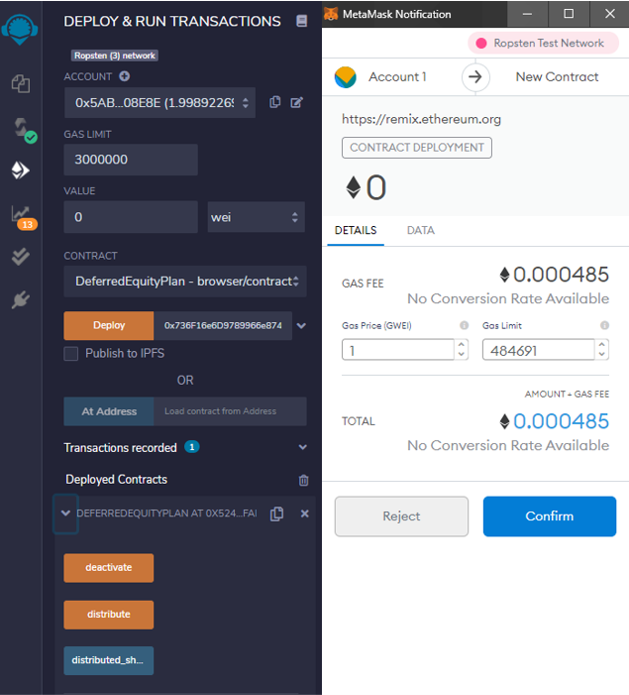In this project, I programmed three contracts for hypothetical compensation arrangements that may be set up by a company HR:
-
AssociateProfitSplittercontract that accepts ETH into the contract and divides it evenly among associate-level employees. This will allow the human resources department to pay employees quickly and efficiently. -
TieredProfitSplittercontract that distributes different percentages of incoming ETH to employees at different tiers/levels. For example, the CEO gets paid 60%, CTO 25%, and Bob gets 15%. -
DeferredEquityPlancontract that models traditional company stock plans. This contract will automatically manage 1000 shares, with an annual distribution of 250 shares over four years for a single employee.
This hypothetical contract is setup to facilitate the payment to three associate-level employees who are all paid the equal share of all ETH transferred into the contract. The contract can be scaled up to facilitate the payments to a larger group of employees.
The Solidity code is shown in this screenshot:
The contract was originally deployed in Remix on my local Ganache chain by connecting to Injected Web3 and ensuring MetaMask is pointed to localhost:8545.
This contract was deployed from my Account 4 on my local Ganache chain and my Account 1, Account 2 and Account 3 were designated as employee_one, employee_two and employee_three respectively.
Here is the screenshot of the balance in my Account 4 (HR) and my "employee" accounts before the deposit of funds:
I booked a deposit transaction for ETH 30:
And the balances in my accounts changed accordingly:
- The balance in Account 4 decreased by ETH30 and
- The balances in my Account1, Account 2 and Account 3 increased by ETH 10 each:
Following this, I deployed AssociateProfitSplitter contract on Ropsten Test Network:
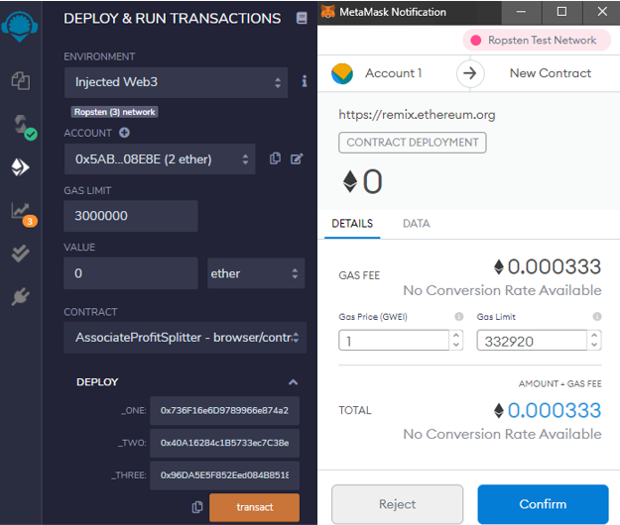
The contract address is 0x58d586456b5d8D9Da820097a63d83692e78d6f9D and it can be checked on Etherscan:
This hypothetical contract is setup to facilitate the payments to three employees of different seniority who are paid different percentages of incoming ETH payments. In this example the employees are:
- The CEO, who gets paid 60%,
- The CTO, who gets paid 25% and
- Bob, who gets paid 15%.
The Solidity code is shown in this screenshot:
Just like in the first contract, I first set up the contract on my local chain and then deployed it on ‘Ropsten Test Network`.
This contract was deployed from my Account 4 on my local Ganache chain and my Account 1, Account 2 and Account 3 were designated as employee_one (CEO), employee_two (CTO) and employee_three (Bob) respectively.
I booked a deposit transaction for ETH 30:
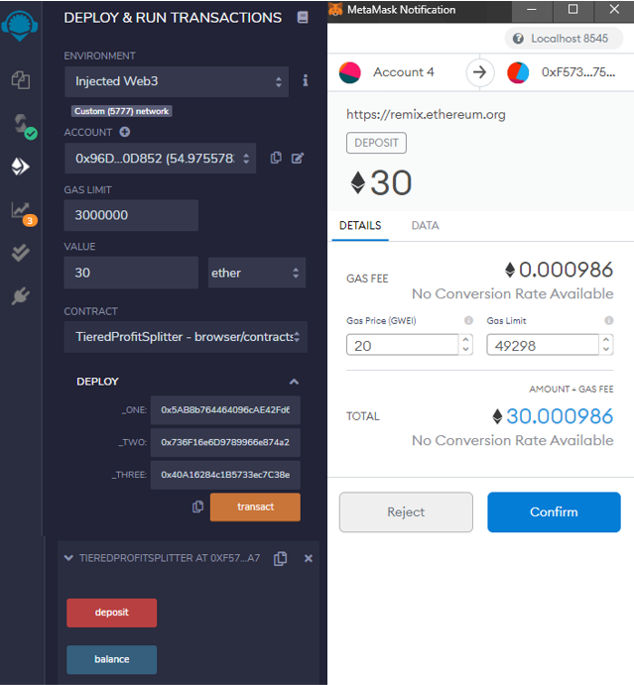
These were the balances in my accounts before the transaction:
And the balances in my accounts changed accordingly:
- The balance in Account 4 decreased by ETH30 and
- The balance in my Account1 increased by ETH 18,
- The balance in my Account 2 increased by ETH 7.5,
- The balance in my Account 3 increased by ETH 4.5.
Following this, I deployed TieredProfitSplitter contract on Ropsten Test Network:
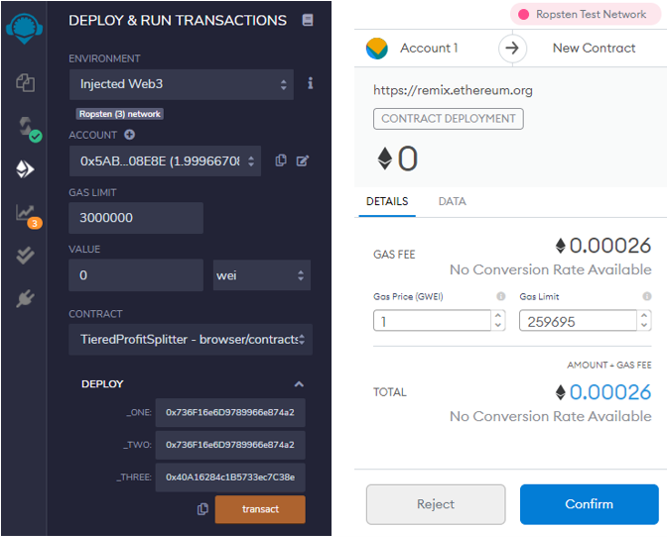
The contract address is 0x1e0692d65a229D987eC0C48a9C9D13Bf82e9d333 and it can be checked on Etherscan:
This contract is design to facilitate the administration of a deferred equity compensation plan. In this contract, an employee gets awarded 1000 shares as part of her/his compensation and those shares are vested over the next 4 years in equal shares of 25% (250 shares) per year.
The Solidity code is shown in this screenshot:
Just like for the previous two contracts, I first set up the contract on my local chain and then deployed it on ‘Ropsten Test Network`.
In this contract, msg.sender is HR who are deploying the contract.
At the start of the contract, the employee needs to be employed (bool active = true).
The employee is awarded the total of 1000 shares (uint total_shares = 1000).
Out of the total number of shares, 250 are vested annually (uint annual_distribution = 250).
The contract records the time when it’s activated (uint start_time = now).
Once the annual distribution is done, the contract then locks for a year. This is managed by the variable uin unlock_time = now + 365 days.
Function distribute requires that:
- Only HR or the employee can execute the contract
require(msg.sender == human_resources || msg.sender == employee) - The employee is still employed
require(active == true) - The current time is past the unlock time
require(unlock_time <= now) - The sum of all annual distributions can’t exceed the total number of shares awarded
require(distributed_shares < total_shares).
The local deployment of this contract is done as follows:
-
For this contract, we test the timelock functionality by adding a new variable called
uint fakenow = now;as the first line of the contract, then replace every other instance ofnowwithfakenow. -
We utilize the following
fastforwardfunction to manipulatefakenowduring testing. For example, you can use this function to "fast forward" time by 100 days when the contract is deployed (requires setting upfakenow):
function fastforward() public { fakenow += 100 days; }
In the following screenshot, you can see how using the fakenow variable and fastforward function, I have simulated several rounds of annual share distributions so that the total number of distributed_shares is equal to 1000:
- Once I have confirmed that the contract's logic is correct, I reverted the
fakenowtesting logic.
Following the testing on local network with fastforward function, I deployed TieredProfitSplitter contract on Ropsten Test Network:
The contract address is 0x524817038d5868d7557D68336891da05f85fAf19 and it can be checked on Etherscan:
